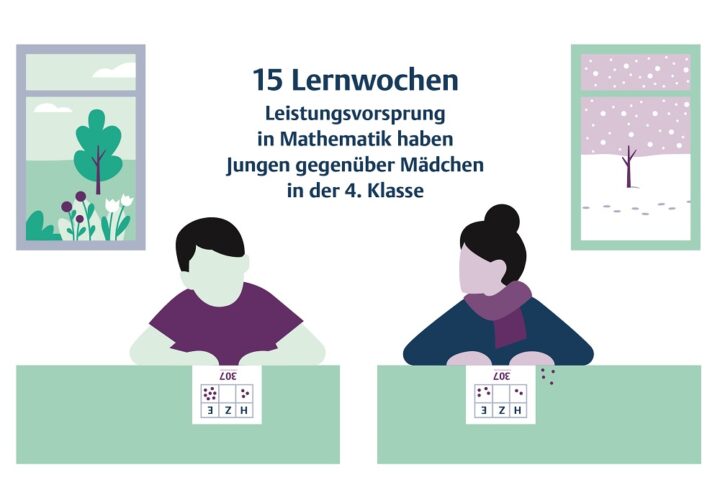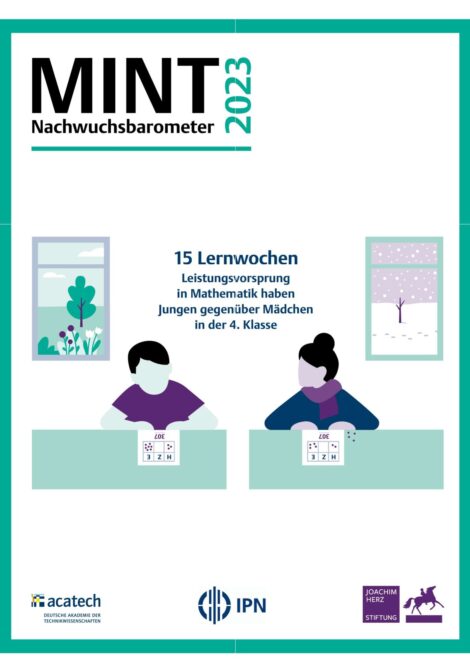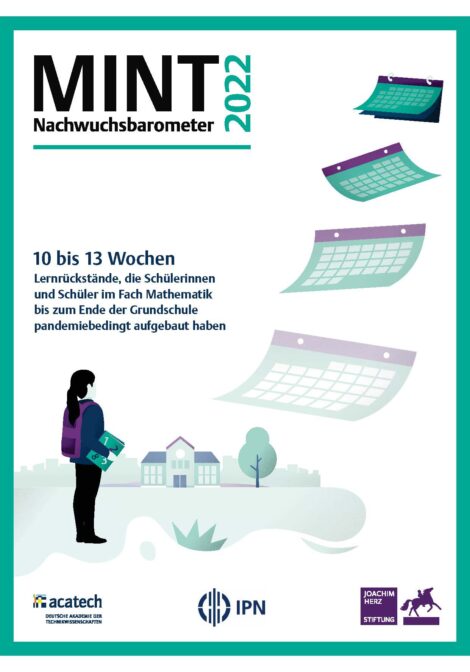STEM Proficiency Study

STEM Proficiency Study
Every year acatech publishes the nationwide trend report on the situation regarding young talents in the STEM subjects Science, Technology, Engineering and Mathematics. It compiles and comments on the key data, facts and figures on young talents in the STEM sector, covering all stages from early education in schools to vocational education and training.
We answer the question of how schools, universities and non-formal learning settings can be brought into the digital age and what impetus must be provided to improve STEM education in a lasting way.
Since the 2022 edition, the STEM Proficiency Study has been jointly published by acatech and the Joachim Herz Foundation and prepared by the IPN – Leibniz Institute for Science and Mathematics Education. Körber-Stiftung was co-publisher of the study from 2014 to 2021.
Its purpose is twofold: the long-term monitoring of key indicators helps with the early detection of trends in the education system and the identification of important areas of action. In addition, the trend report reveals factors and reasons that influence young adults’ choice of study and career.
Background and objectives
STEM subjects and careers continue to hold little attraction for many young people. Very few young people, especially girls, take up technical vocational training. Since September 2020, the skills shortage in the STEM sector is on the rise again despite a temporary improvement during the COVID-19 pandemic. There is urgent need for action with regard to STEM education in schools, too (see 2023 STEM Proficiency Study) (in German). The gender gap in mathematics achievement, for example, has widened considerably over the past ten years. Ten-year-old boys are around 15 school weeks ahead of girls in terms of performance.
When it comes to the innovative capacity of Germany, however, we are reliant on more young people who have the innovative solutions and STEM expertise to be able to tackle global and national challenges, such as climate action and digital transformation.
A good STEM education is also required for social integration, for professional development and is important for bringing about greater equality of opportunity. We therefore work systematically with stakeholders from politics, research and economy towards developing interests and skills in technology and the natural sciences at all stages of life.
Summit on the “2023 STEM Proficiency Study”
On 8 May, decision-makers from politics, research and economy discussed the key results of the 2023 STEM Proficiency Study (in German) as part of a summit held in Berlin. The discussion highlighted both the urgent need for courses to enable school pupils to catch up as well as for structural changes in the education system.
The potential of the digital transformation in schools can only be realised if all involved have a shared vision and embrace openness. The participants agreed that structural changes in the education system must be addressed now, so as not to exacerbate the problems in STEM education in the next ten years. Better STEM education can only be achieved through the joint efforts of all stakeholders.







